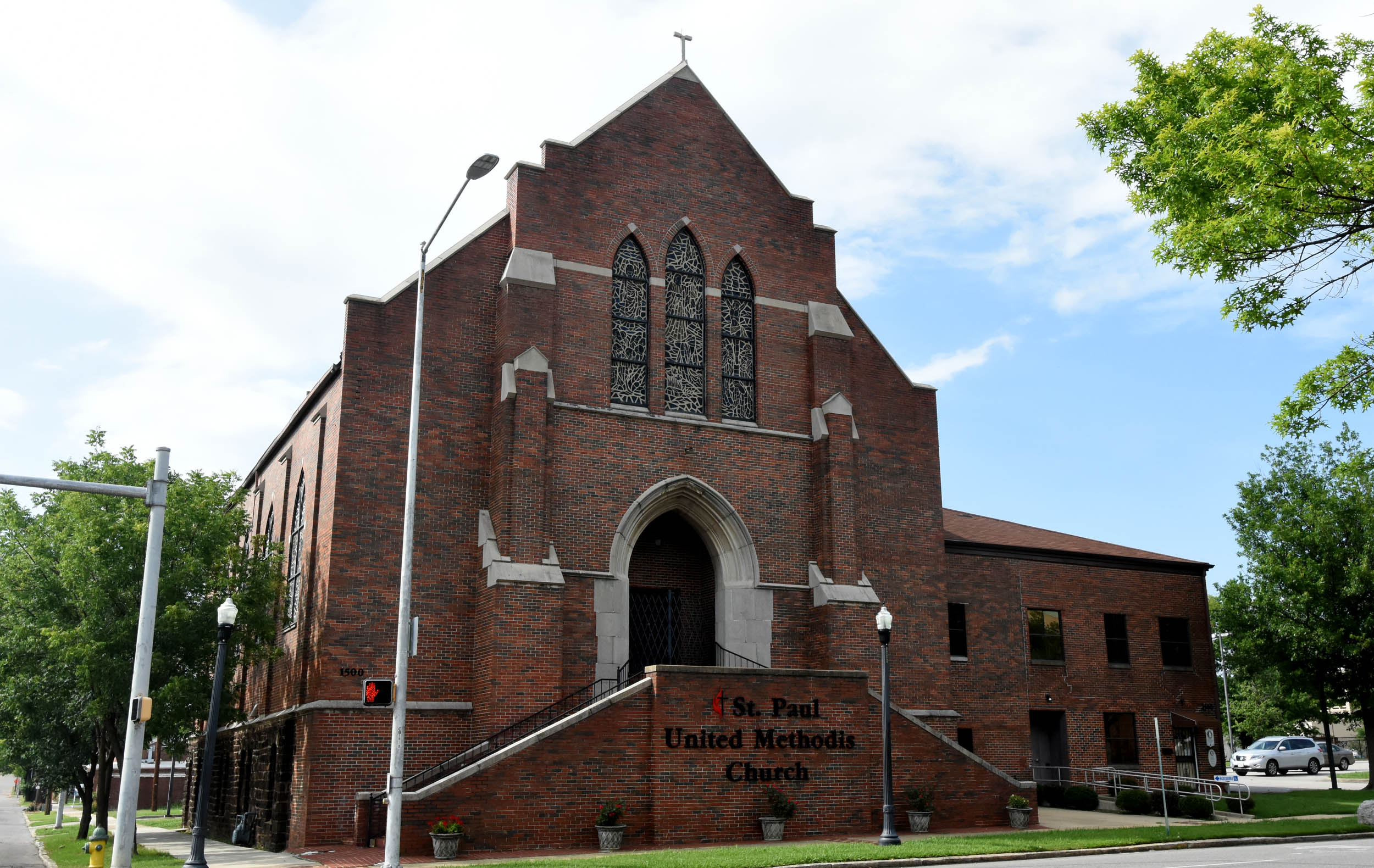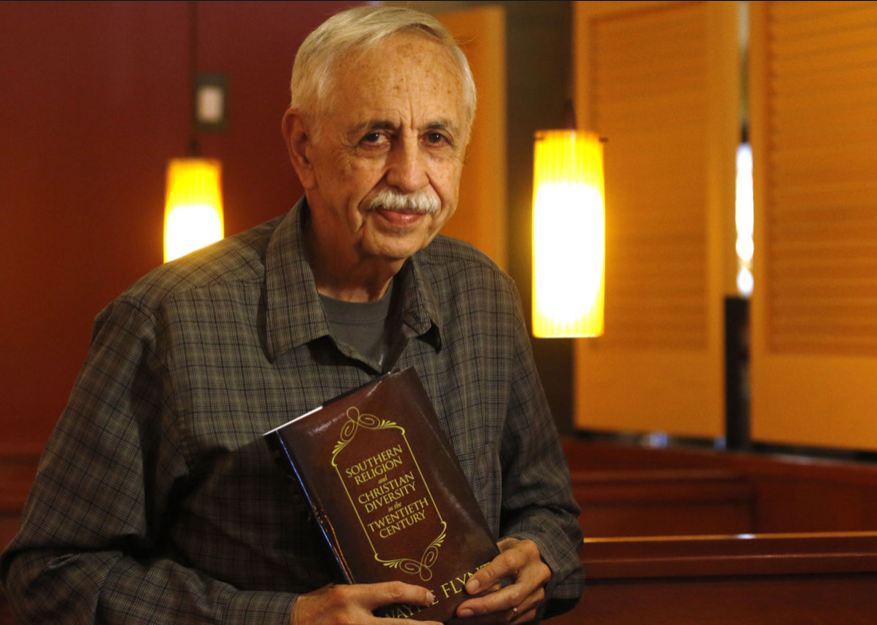By Nathan Turner Jr.
For the Birmingham Times
Churches with longevity have mastered a formula: they fill community needs and are fortified with strong leadership, say church historians. Robust families and communities also contribute to this equation.
“Many of the older churches, such as Sixth Avenue Baptist and Sixteenth Street Baptist, have had strong continuous leadership,” said the Rev. Dr. Wilson Fallin, president of Easonian Baptist Bible College in Powderly. “And they have programs that take care of the needs of the people.”
In Birmingham, there are at least 11 churches that were established in the 1800s—including St. Paul United Methodist Church (1869) and Sixteenth Street Baptist Church (1873). At least another 12 are 100 years old or older, and two more will celebrate centennials by 2019.
Sixteenth Street Baptist Church was organized as the First Colored Baptist Church of Birmingham, the first black church to organize in Birmingham. Sixth Avenue Baptist Church was founded in 1881 as the Second Colored Baptist Church. Both churches figured prominently in the Birmingham-inspired U.S. civil rights movement.
Fallin, who also is a professor of history at the University of Montevallo, explained that churches located in robust communities often are able to survive, while others may fall by the wayside. He cited the 135-year-old First Congregational Church on Birmingham’s Center Street on the west side as an example. The church was founded in 1882 and originally operated in a vacant store on 4th Avenue between 16th and 17th Streets North. It moved to its current location in the middle-class section of Smithfield in 1952, according to the church website.

“Churches have gone out of existence because their surrounding communities have deteriorated,” said Fallin. “But people who live in houses that they own and remain in for a number of years … contribute to the longevity of churches.”
Historian Wayne Flynt, a retired professor and history department chairman at Auburn University, said churches are formed not just because of theology but also because of sociology. As a neighborhood changes, sociological transformations occur before theological transformations, he said.
“Churches form themselves around doctrine, and churches form themselves around sociology,” said Flynt. “Almost everybody recognizes the theological origin of congregations, but not so much attention has been paid to the sociological nature of congregations.”
For example, he said, “Before very long, when the pastor leaves, you call someone, especially in congregationally driven churches like Baptists and Pentecostals, and wind up getting somebody who’s more like you … economically and socially in terms of education and background.”
Churches can sometimes be divided between family churches and community churches, he said, citing research by Troy Morrison, the former executive secretary of the Alabama Baptist State Convention. Upon a pastor’s arrival, there are about three or four people who will determine if he stays.
“[A family church may have] 300 members, but there are two or three or four patriarchs and matriarchs who will decide [the pastor’s] fate at any given time,” Flynt said. “Then there are churches that typically are community churches; they tend to be governed not by patriarchs and matriarchs but by committees.”

In a community church, the budget committee, the personnel committee, and the deacons represent several different families.
Fallin, who most recently pastored Oak Grove Baptist Church in Bessemer for 27 years, pointed out that many African-American churches fold following a break within the membership.
“These splits are often hard situations. But if there is a smooth transition and not a lot of dissension” a church can survive the rupture, he added.
Also, Fallin pointed out, many long-lived churches are static in growth and experience declines in membership. This phenomenon arises as older members die and younger people are attracted to nondenominational or charismatic houses of worship that feature “aggressive” programs, push discussion groups, and offer a variety of family activities.
The most robust and resilient churches still fill community needs, much like houses of worship did following the demise of slavery in the United States, observers say. During that period, African-American churches took on roles as self-help institutions that aided the sick, ran burial societies to raise money for funeral expenses, and even started schools and banks. Another need fulfilled by churches: they provide a sense of dignity to many congregants.
“They give hope and self-esteem. A person can be a janitor during the week, but they can serve as a deacon or choir member on Sunday,” Fallin said.
Some of Birmingham’s Oldest Churches
| Established | Pastor | |
| St. Paul United Methodist Church
1500 6th Ave. North, Birmingham |
1869 | Rev. Horace Blount |
| Sixteenth Street Baptist Church
1530 Sixth Avenue North, Northside |
1873 | Rev. Arthur Price, Jr. |
| Broad Street Missionary Baptist Church 121 Morris Avenue, Birmingham | 1878 | Rev. Truitt Evans, Sr. |
| Twenty-Second Ave. Baptist Church 2614 22nd Avenue North, N. Birmingham | 1878 | Rev. Keith L. Winfield |
| Thirgood (Memorial CME Church
1027 Seventh Avenue, North, Northside |
1879 | Rev. Lamont Johnson |
| Sixth Avenue Baptist Church
1101 Martin Luther King Jr. Drive, Southwest side |
1881 | Rev. John Cantelow |
| First Congregational Church 1024 Center Street North | 1882 | Rev. Dr. Rodney Franklin |
| Macedonia 17th Street Baptist Church
922 17th Street North, Northside |
1885 | Thomas Hunter |
| Metropolitan AME Zion Church
1530 Fourth Avenue North, Northside |
1885 | Rev. Josh U. Johnson |
| Bethel AME Church
1524 Avenue D, Ensley |
1888 | Rev. Ronald Thompson |
| Jackson Street Baptist Church
230 63rd Street South, Woodlawn |
1888 | Rev. George England III |
| Metropolitan CME Church
1600 Ave. K, Ensley |
1900 | Dr, Larry Batie |
| New Pilgrim Baptist Church
903 Sixth Avenue South, Southside |
1900 | Rev. James Brooks |
| Shady Grove Baptist Church
3444 31st Way North, Collegeville |
1902 | Michael S. Yarborough |
| Bethel Baptist Church, Collegeville 3200 28th Avenue North, Collegeville | 1904 | Rev. Dr. Thomas L. Wilder Jr. |
| Groveland Baptist Church
5437 5th Avenue S., Woodlawn |
1905 | Rev. James E. Johnson |
| St. John Missionary Baptist Church
2401 Carlos Avenue SW, Powderly |
1910 | (no current pastor) |
| St. Paul AME Church
300 4th Court Northside, Smithfield |
1911 | Rev. Dr. Ronald D. Sterling |
| Oak Street Baptist Church
3224 Virginia Ave, Collegeville |
1916 | Marvin. R. Conner |
| St. Paul CME Church
400 Circle Street, Docena |
1916 | Alvin Crenshaw |
| Starlight Baptist Church
1280 AL 150, Muscoda |
1916 | Rev. Dr. Alfonso Ross, Jr. |
| Galilee Baptist Church
1013 23rd Street North, Northside |
1918 | Dr. James E. Tyus |
| East End Baptist Church
2609 Sixth Avenue South, Southside |
1919 | Johnny L. Mosby |
Source: Birmingham Historical Society. The Birmingham Times.




